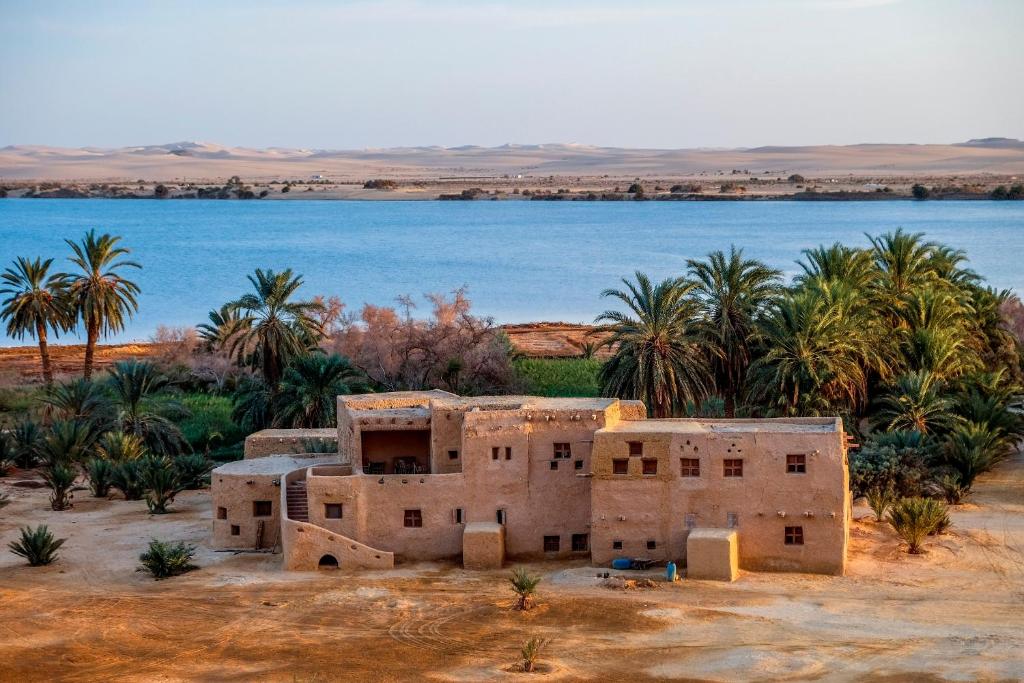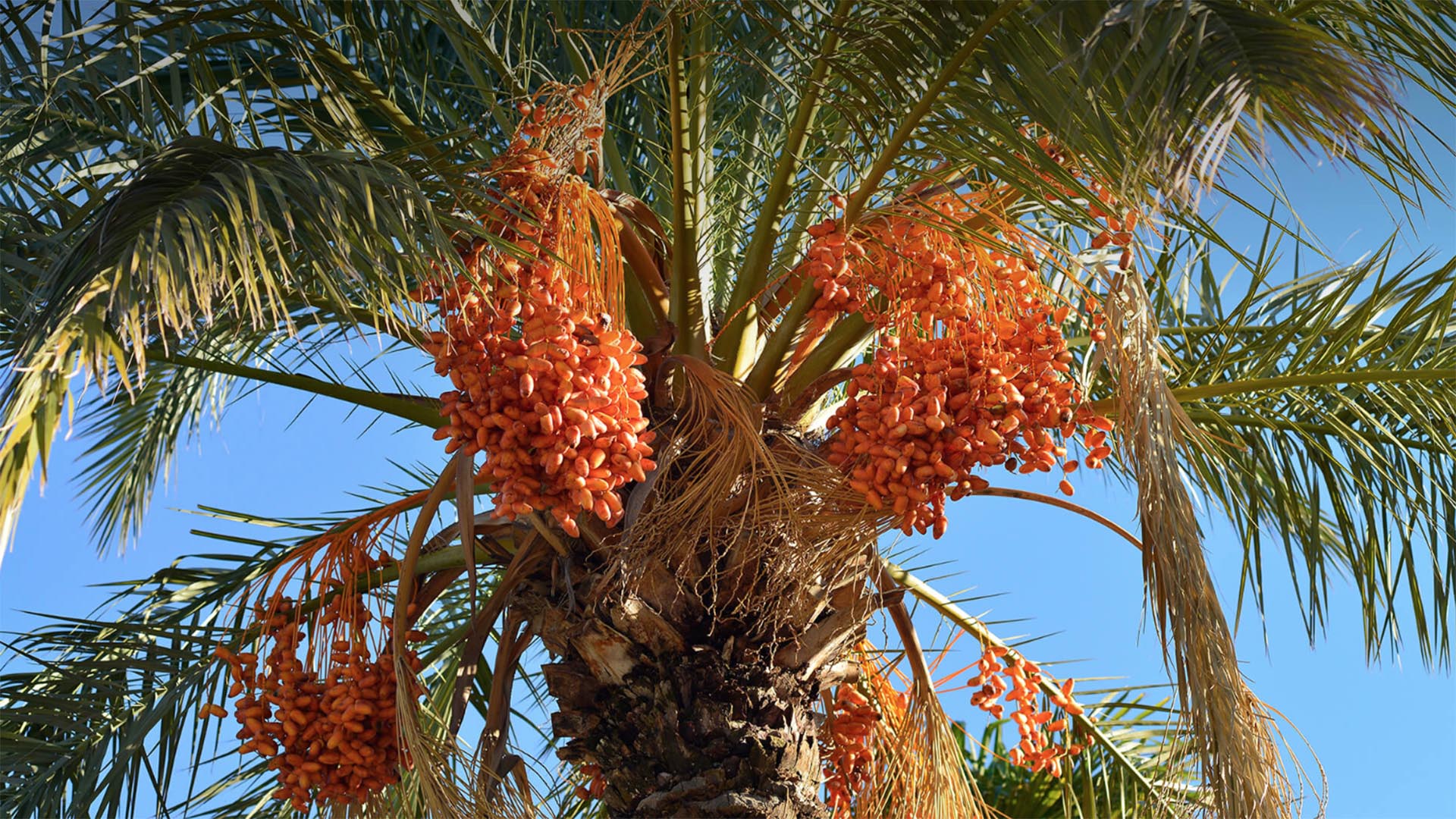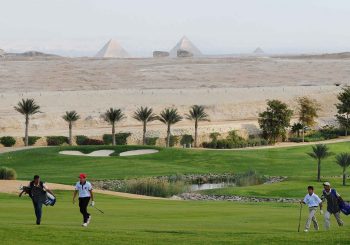
If one spares a second, or even a single moment, to appreciate the beauty of nature and the infinite number of benefits it can provide, so much in our world can be changed in terms of climate action.
Whenever climate solutions are discussed, projects that are deemed more profitable for the private sector are seen as a better alternative to nature-based solutions. One study by Ebony Holland, a climate researcher at the London-based International Institute for Environment and Development, revealed that less than 10 percent of international funding for climate adaptation in developing nations went into projects that harness nature, despite the fact they are often cheaper and more effective than large-scale engineering projects.
Engulfing whole communities and vast expanses of land, the date palm tree has always been deeply embedded in the social fabric of people in Egypt and the rest of the Arab world. The much prized tree did not just provide shelter for animals and people from the scorching desert heat, but also helped support the people of the Arabian peninsula in multiple ways. For instance, due to the fact it is one of the few growing trees in the often arid region, all parts of the date palm are of great benefit in vernacular architecture and local lifestyles: the date palm is used for roofing the houses, the big palm wood is used for building the walls of the house, the leaves supplied material for furniture, the leaf bases are used for fuel.
Today, the date palm tree can become a symbol of climate action. Smallholder farmers in Luxor, such as 35-year-old Khaled Owais, who is surrounded by palm trees on his farmland in El-Boghdadi, are calling for scientists and climate researchers to explore the potential of date palm trees in the fight to protect farmers from the impacts of climate change.
It is an example of how nature’s generosity stretches beyond imagination, and can be found even in the desert’s arid climate.
“We see an opportunity to extract sugar from the palm tree, which can help in the production of sugar as an alternative to the production of sugar from sugar cane. Date palm trees can also provide shade and reduce the temperature for crops, because its leaves do not fall and it does not need a huge amount of water to withstand high temperatures,” Owais says.
“The Ministry of Water Resources and Irrigation could study the idea of planting one million palm trees and establishing food industries from dates,” he adds.
In 2020, Egypt produced 1.7 million tons of dates, which constitutes over 21 percent of global date production, according to the United Nations Food and Agriculture Organization. Egypt also announced a national project in 2019 for date palm cultivation, with the intent to plant 2.5 million date palm trees on 37,000 acres in Toshka, Upper Egypt.
This plan echoes the success of the Serapium Forest, which is a massive plantation in Egypt, located a short distance from the Ismailia governorate. Originally a dry desert, the Serapium Forest came into being after a research collaboration in the 1990s between German and Egyptian scientists, which aimed to capitalize on Egypt’s abundance of sunlight to grow massive plantations.
With Africa struggling to transition to a low-carbon economy—due to the lack of infrastructure and adequate investment in sustainable projects—massive plantation of date palms have been suggested by a number of researchers as an alternative nature-based solution.
A wide scale plantation of date palm trees across the Arab world, similar to the Amazon’s rainforest, can help make it the “world’s future lungs”, according to research by Adel Sharif and Mohammed Taleb. In one report, it was revealed that growing one million date palm trees can absorb around 28.7 megatons of carbon dioxide (CO2) per year, and each individual date palm can absorb around 200 kilograms of CO2 per year.
Scientists at a world-leading research center in the United Kingdom have also revealed, after carrying out tests on plants in the United Arab Emirates, that date palms make biofuel that can be used for powering cars and machinery, as well as fertilizing soil.
A single date palm tree can also produce an annual crop of dates that exceeds 100 kilograms, meaning that growing date palms can help provide viable economic opportunities and higher revenue for farmers to export abroad.
A call for action was recently made in the Khalifa Award report 2021, which urged bio-regional collaboration between countries in the South to convert the date palm industry into a successful model of the bio-circular economy.
In light of Egypt’s presidency of the United Nations Climate Change Conference (COP 27) in Sharm El-Sheikh this year, now should be the critical and historic moment for nature-based solutions to take center stage.
Subscribe to the Egyptian Streets’ weekly newsletter! Catch up on the latest news, arts & culture headlines, exclusive features and more stories that matter, delivered straight to your inbox by clicking here.






Comments (3)
[…] موطن لواحد من أشهر النباتات وأكثرها غرابة وفائدة: نبات أشجار النخيل. لتوفير الحماية من درجات الحرارة المرتفعة والتصحر ، […]
[…] Africa is known to be home to one of the most popular, exotic and beneficial plants: the palm trees. Providing protection against hot temperatures and desertification, palm trees can also absorb […]